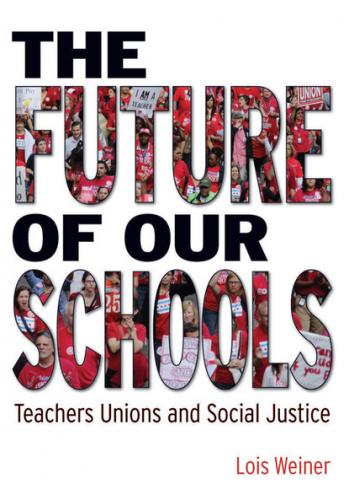If teachers have a good union, do they also need separate space to pursue their responsibilities as “idea workers”? The first teachers union in the United States, formed by elementary schoolteachers in Chicago at the turn of the nineteenth century, thought so and pursued the creation of “teachers councils.” These councils were similar in their function to a college or university faculty senate. They were organizationally independent of the union. The union’s involvement was in advocating for creating the councils and pressing for council decisions to be taken seriously. Teachers elected representatives to the councils, which had an advisory role on educational decisions.13
When I began to teach in New York City, I saw the importance of having separate professional organizations and teachers unions. In California, the state teachers unions and professional associations collaborated on legislative matters, and a stellar English teacher was an officer of both the California Federation of Teachers and the California Association of Teachers of English. However, the organizations retained total organizational independence and sometimes came down differently on issues of curriculum. Quite a different situation existed in New York City, where the union’s subject matter committees used the union’s political clout to represent the union as speaking for teachers in regard to city and state decisions on curriculum and instruction. The subject committees blocked proposals that the union leadership found politically objectionable.
We need to maintain a separation between teachers being organized professionally as “idea workers” and the union’s apparatus so as to protect teachers’ freedom to advocate ideas that the union, even a good union, may find objectionable. We see the kind of separation I’m advocating in colleges and universities that are unionized and have a senate, which oversees curriculum. While the faculty union may be involved in decisions that relate to instruction, for instance in pressing the administration to lower class sizes, the two spheres are separate. This separation is especially important in K–12 schools because of the diversity of opinion among thoughtful teachers and parents about what works best in classrooms.14 Teachers who are closer to minority and immigrant communities bring perspectives that their colleagues and the unions have to hear.15 The union’s responsibility is to protect the space for teachers, parents, and students to have those conversations.
Conventional (teachers union) wisdom has it that collective bargaining improved teachers’ working conditions, and if we define teachers’ work primarily in terms of wages and hours, that is accurate. In contrast, what’s happened to teachers’ influence on nonmonetary issues, like curriculum? One study argues that teachers in National Education Association (NEA) affiliates actually had more voice in professional matters before the NEA engaged in collective bargaining.16 In part this occurred because collective bargaining laws defined the “scope of bargaining,” what was legal to negotiate, quite narrowly. Most professional matters, like having a voice in adoption of materials or professional development, were ruled off-limits, leaving only class size, salary, and hours as bargaining concerns.
I think neoliberalism’s success in painting unions as self- interested and selfish and the attack on the right to bargain contracts make this an opportune time to rethink the scope of bargaining. In other words, what do we get in legislation that gives us the right to negotiate legally binding contracts—as compared to what we give up? In California, I and other teacher union activists were advised by experts from the state and national unions to accept collective bargaining legislation with the usual narrow scope. We were persuaded that we would never get the legislation we wanted, but that we could at a later date modify the legislation (which has, to my knowledge, never occurred—anywhere) to cover professional concerns. Previous to having collective bargaining, my school district had school-site councils with department heads (elected, in the junior high and high schools) and grade-level leaders (elected, in the elementary schools). The councils met with principals, and while they were strictly advisory, in schools that had a strong union presence, the councils had considerable influence. Though we lacked the legal right to bargain collectively, teachers in my district could and did mobilize effectively to pressure the school board on salary and working conditions. With collective bargaining, we had a single bargaining agent and the right to have a contract. However, the councils lost their authority, and with their demise, teachers lost our collective voice about academic matters.
Because of this narrow scope of bargaining, teachers unions are generally precluded from addressing teachers’ academic concerns, like standardized testing and textbook selection. One solution, which I develop in the next chapter, is for the unions to be remade, as social movements, and to reopen the question of how we will use the power of teachers.
Конец ознакомительного фрагмента.
Текст предоставлен ООО «ЛитРес».
Прочитайте эту книгу целиком, купив полную легальную версию на ЛитРес.
Безопасно оплатить книгу можно банковской картой Visa, MasterCard, Maestro, со счета мобильного телефона, с платежного терминала, в салоне МТС или Связной, через PayPal, WebMoney, Яндекс.Деньги, QIWI Кошелек, бонусными картами или другим удобным Вам способом.
